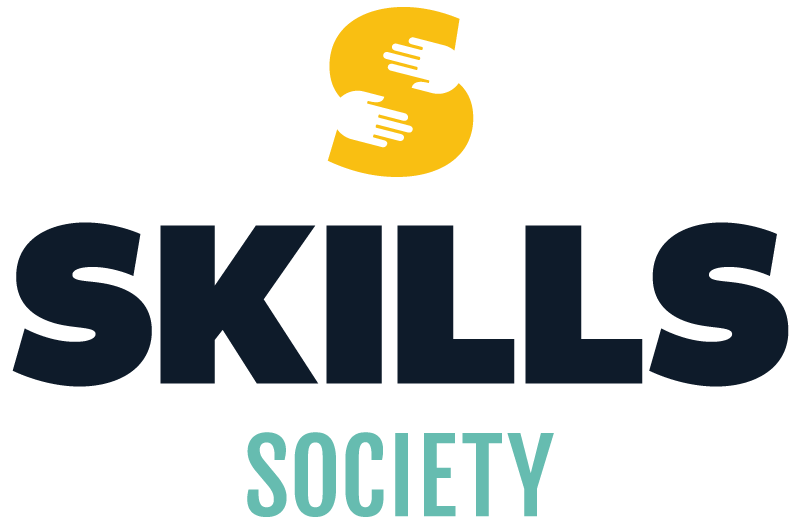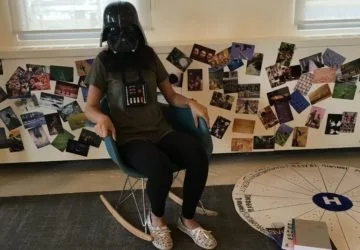Flashback with Rhea - Social Innovation Intern Extraordinaire
A glimpse of what our summer Social Innovation intern Rhea Kachroo has accomplished during her time at Skills Society.
Rhea and I walked to the restaurant together catching up and preparing ourselves for the interview ahead. Rhea was hired as a summer intern with the title "Social Innovation Action Researcher", a title she had quite some practice saying. Rhea had recently graduated from the University of Alberta with a Bachelor of Science and was planning on going back to school in September to pursue an after degree in Environmental Health.
Rhea’s many hats at Skills
Rhea dabbled in many areas beyond her research role. Her work included at first to learn the concept of social innovation through various means, such as case studies, books, and interviewing her fellow coworkers at Skills. She also compiled articles and was the leading force behind designing and writing an important tool kit for what is now called the Edmonton Shift Lab. In preparation for the launch of the Shift Lab, Rhea took part in creating beautiful public engagement tools that not only were used for sense making with the public but also creatively spelled S.H.I.F.T.
The Tool Kit
Rhea's main area of study for the Shift Lab was between the intersections of racism and poverty and how to explain what social innovation is at Skills Society. From her knowledge and learning, she created the Shift Lab tool kit, and a document to explain concepts of what social innovation and human-centered design thinking is.
What is Shift Lab?
I got the sense of the work Rhea had been focusing on, however, I found myself having to dig deeper to understand what the Shift Lab is all about.
In Rhea's words, "It is a partnership between Edmonton Community Foundation and Skills Society trying to bring social innovation approaches to racism and poverty within Edmonton. A lot of collaboration between community, service providers, and policy makers."
The approach of the lab is designed to include all players working towards the same goal - to find creative ways to reduce racism contributing to poverty in Edmonton. The shift lab takes in the voices of the community, the people who live through the struggles and bringing their experiences to a lateral level of individuals/organizations that can shift our current system.
Comfortable with ambiguity
I had to ask Rhea from her role at Skills, what she learned while collaborating with her fellow Shift Lab stewards Aleeya, Sam, Ashley and Ben during the development of the Shift Lab. As phrased by Rhea,
"Social innovation is very confusing and you have to be comfortable with ambiguity. Being comfortable with the unknown is a struggle in itself, it is a totally different way of thinking. It teaches you how to look at a situation in multiple perspectives and the importance of collaboration and the tools you can use to become more creative."
As pointed out by Rhea, she learned a lot about human-centred design during her time at Skills. To her and myself, this type of thinking seems like common sense. Rhea learned when designing services/innovations we should ask the people we are designing for of their needs -but it is not yet a very common practice we have experienced.
Foster Creativity
On the topic of social innovation, I asked Rhea what she thought about social innovation and if she thought it was something that was coming out now. In Rhea eyes, social innovation had always existed, however, the term 'social innovation' and the field itself is always improving. It is a field that hungers to foster creativity.
Understand our assumptions
In terms of what Rhea has so far learned from her experiences, I was curious to hear about how we could shift the ideas of disability in our society. As Rhea has put it, "It is important to understand what our assumptions are and what lens we view the world from and sometimes we are not aware of them. It is our biases and we must think about them. Asking ourselves the question, 'What are my assumptions and how does it impact how I see others?'"
By understanding our own assumptions we can use it to evaluate how we innovate and carve a journey towards change. Thus, our focus can shift away from how we want individuals to be seen, and centered more on how they want to be seen and contribute to society.
To Take Forward
The final question I had for Rhea was simply, why Skills?
As most places, she did not have any expectations before working here. As she began working at Skills, her experiences were unique. She felt the passionate energy the place created. It became natural for Rhea to see people's personalities come out. Whether it was jamming out in the space or having the Olympics play on the screen while we were there, everyone at Skills brought their authenticity to their work.
Originally, Rhea came into Skills looking for research experience, which she gained! However, as she says,
"I didn't realize the diversity of individuals and the spectrum of different interventions and supports you can give to people to actually improve their way of life. There's always new things coming out of how supports can be better and inclusive. Coming to Skills, my perspective changed in the way in which we integrate the person in every step to bring how they want their lives to be; how they are seen, what they want/need. I did not know human-centered design and creating that culture of creativity was so important to me as I move forward with my education."
With that, Rhea and I had finished our meals and headed back to the office together. We spent the afternoon together chatting and working alongside each together before heading home. It has been a pleasure to have met Rhea over the summer and be given the time and opportunity to sit down and listen to her story.
Thank you,
Arlene Lam
Once again we are so grateful to @rheakachroo this summer for all her hard work @yegshiftlab and our #actionlabyeg#socinn#psilabs




